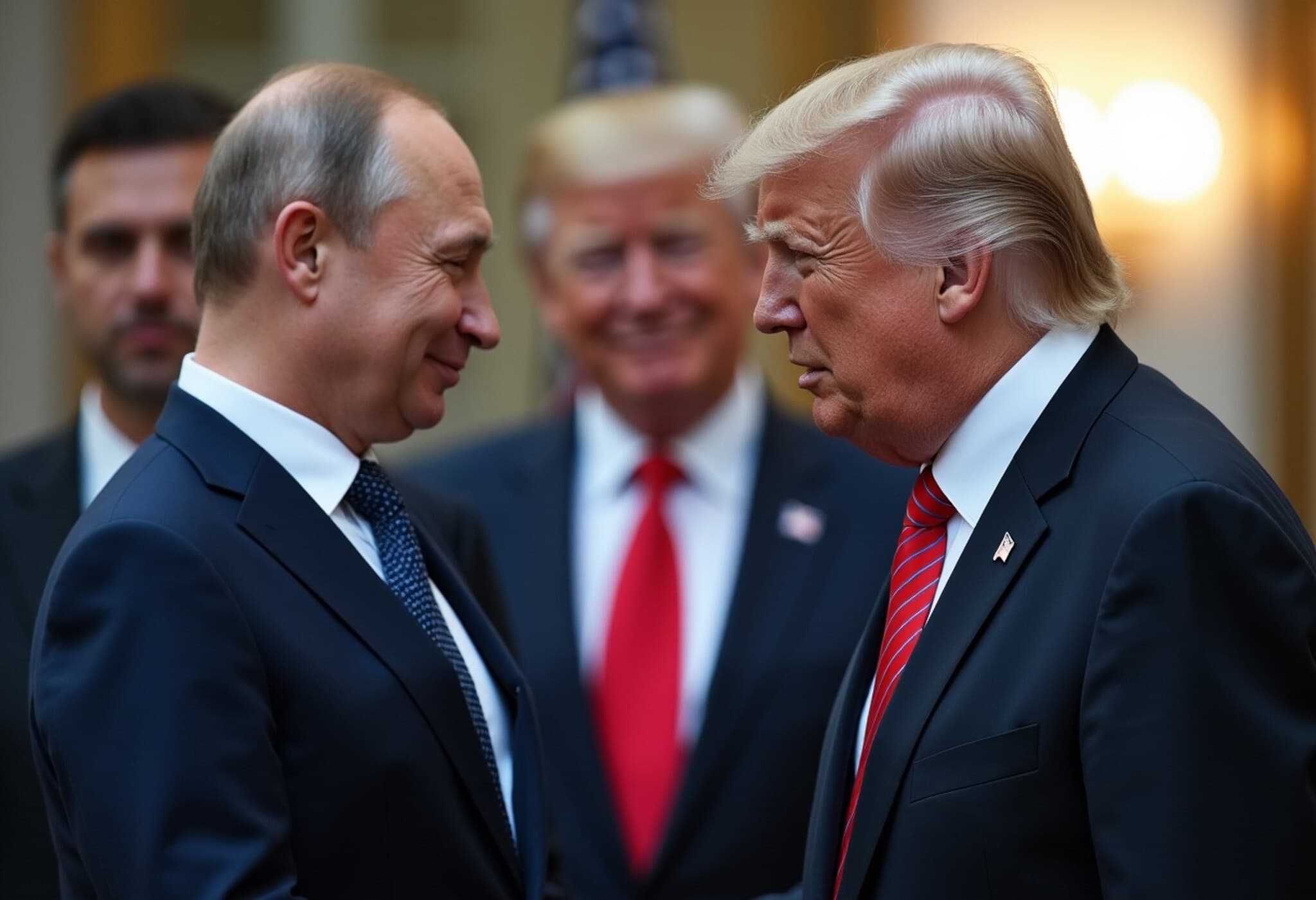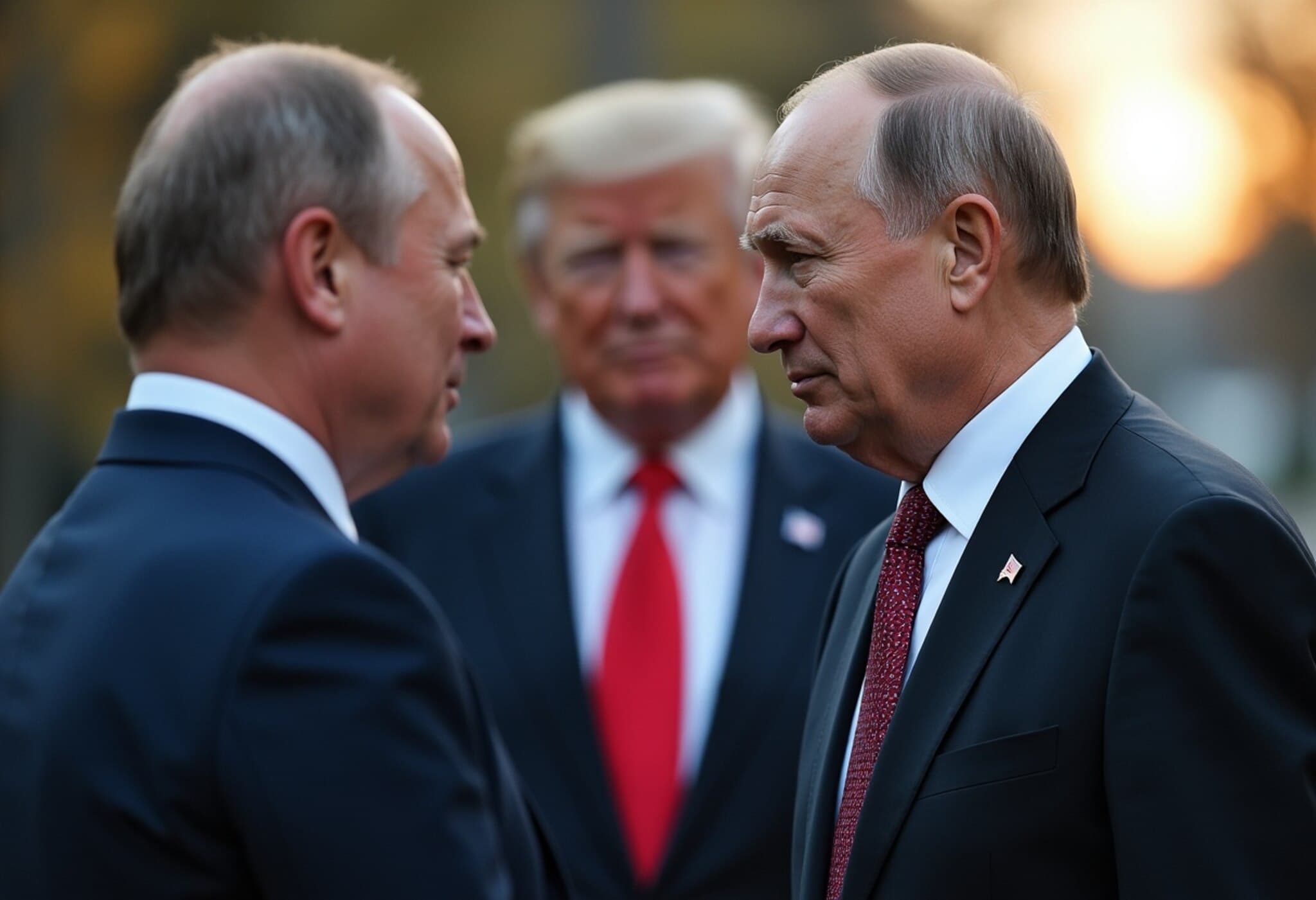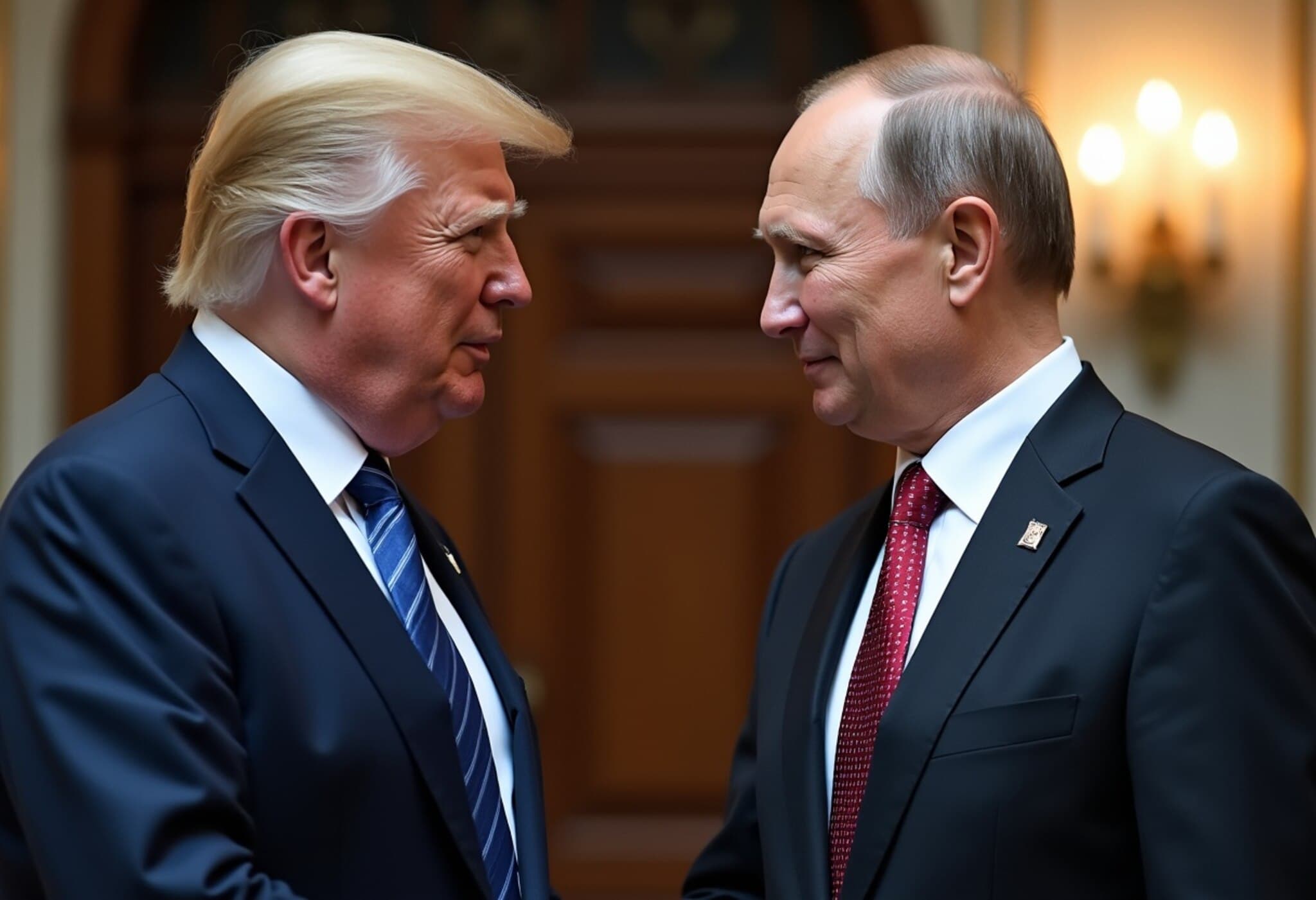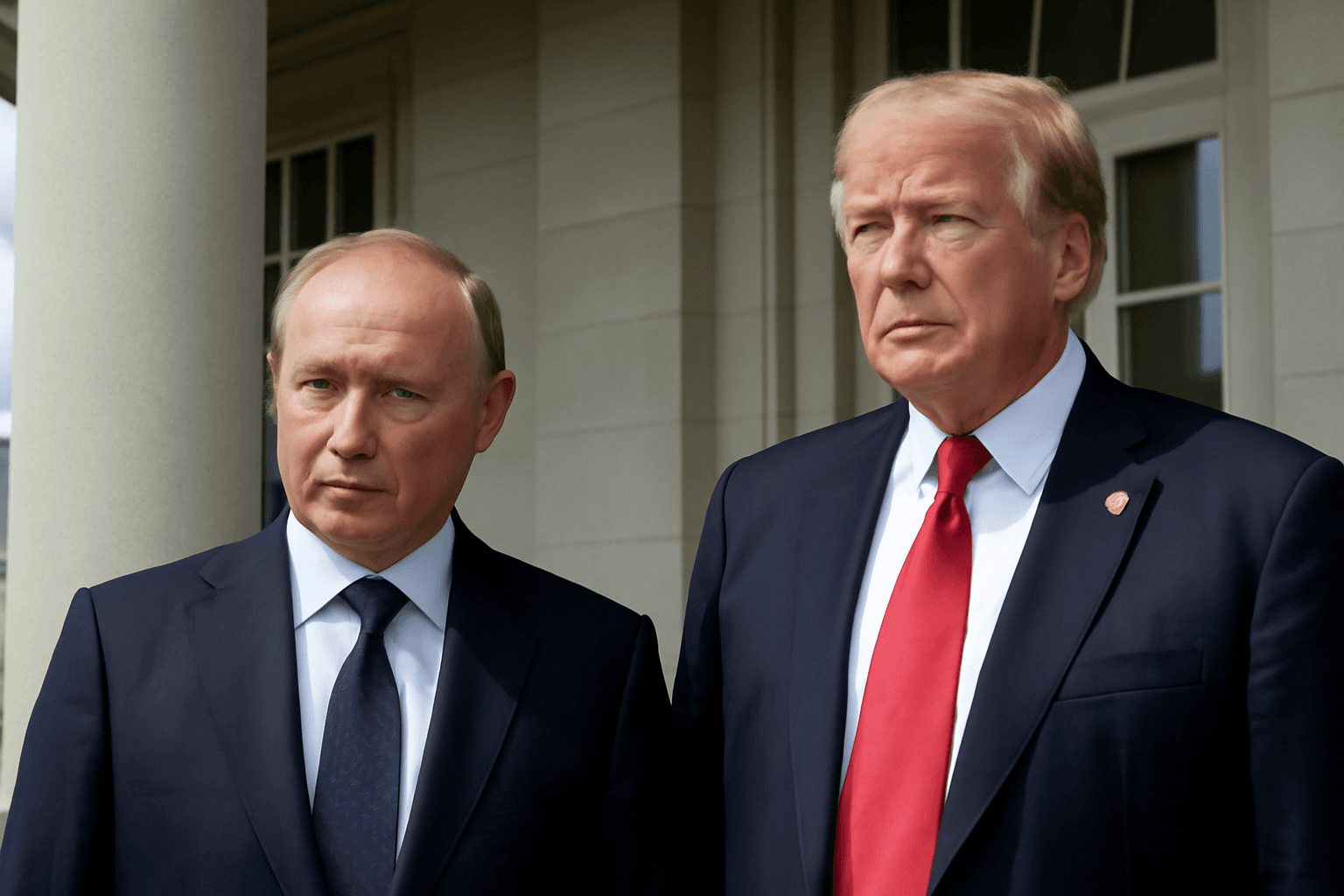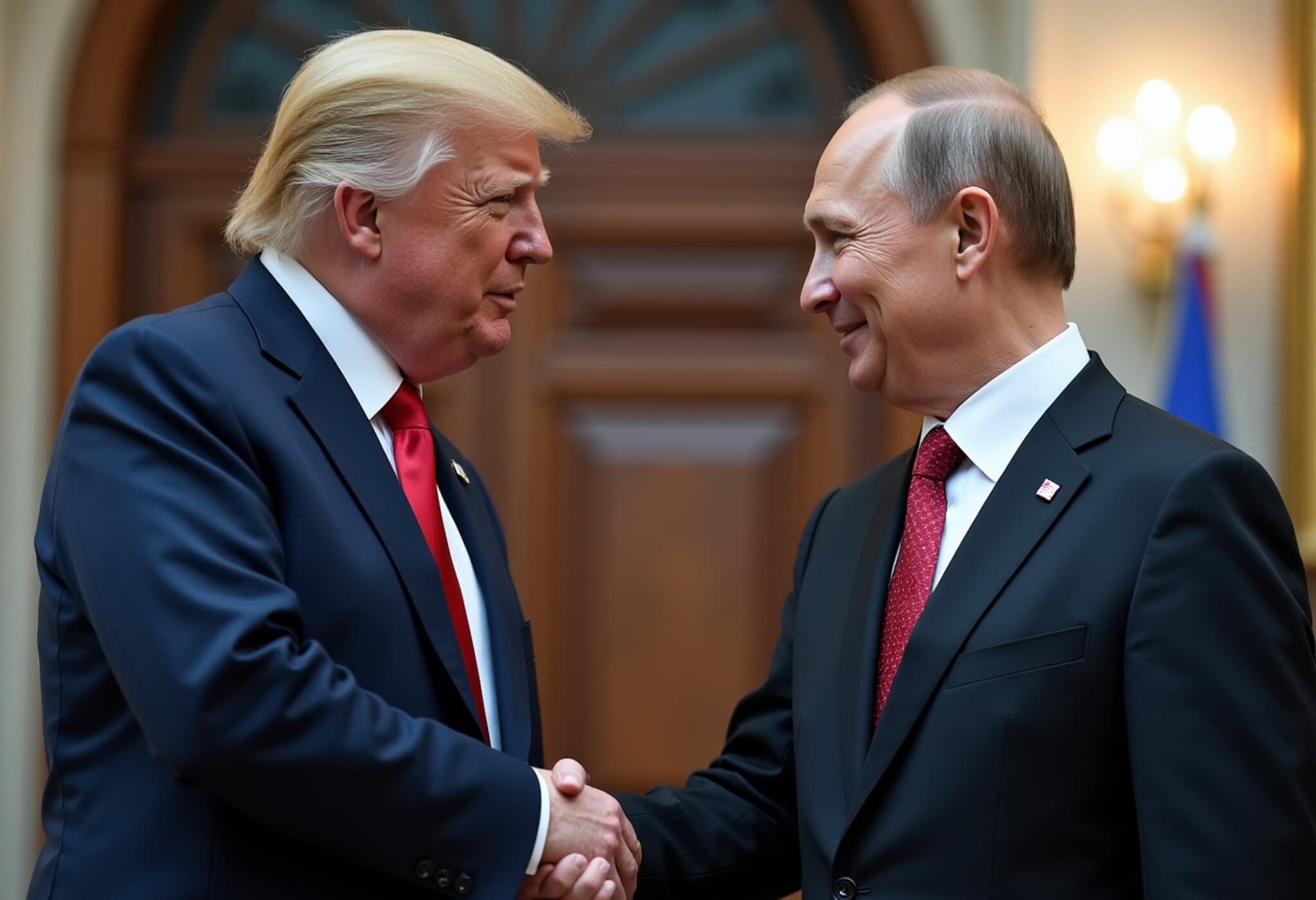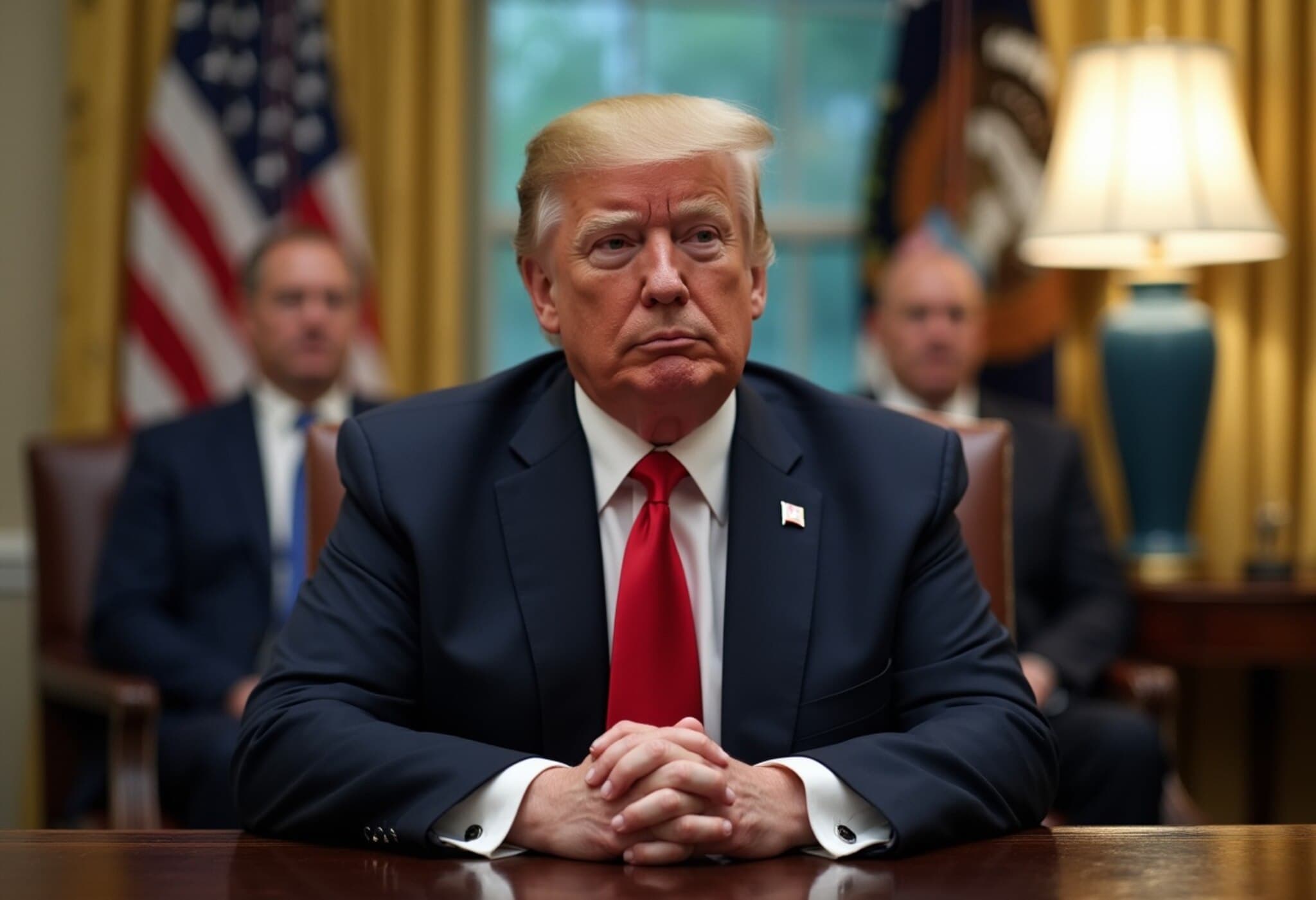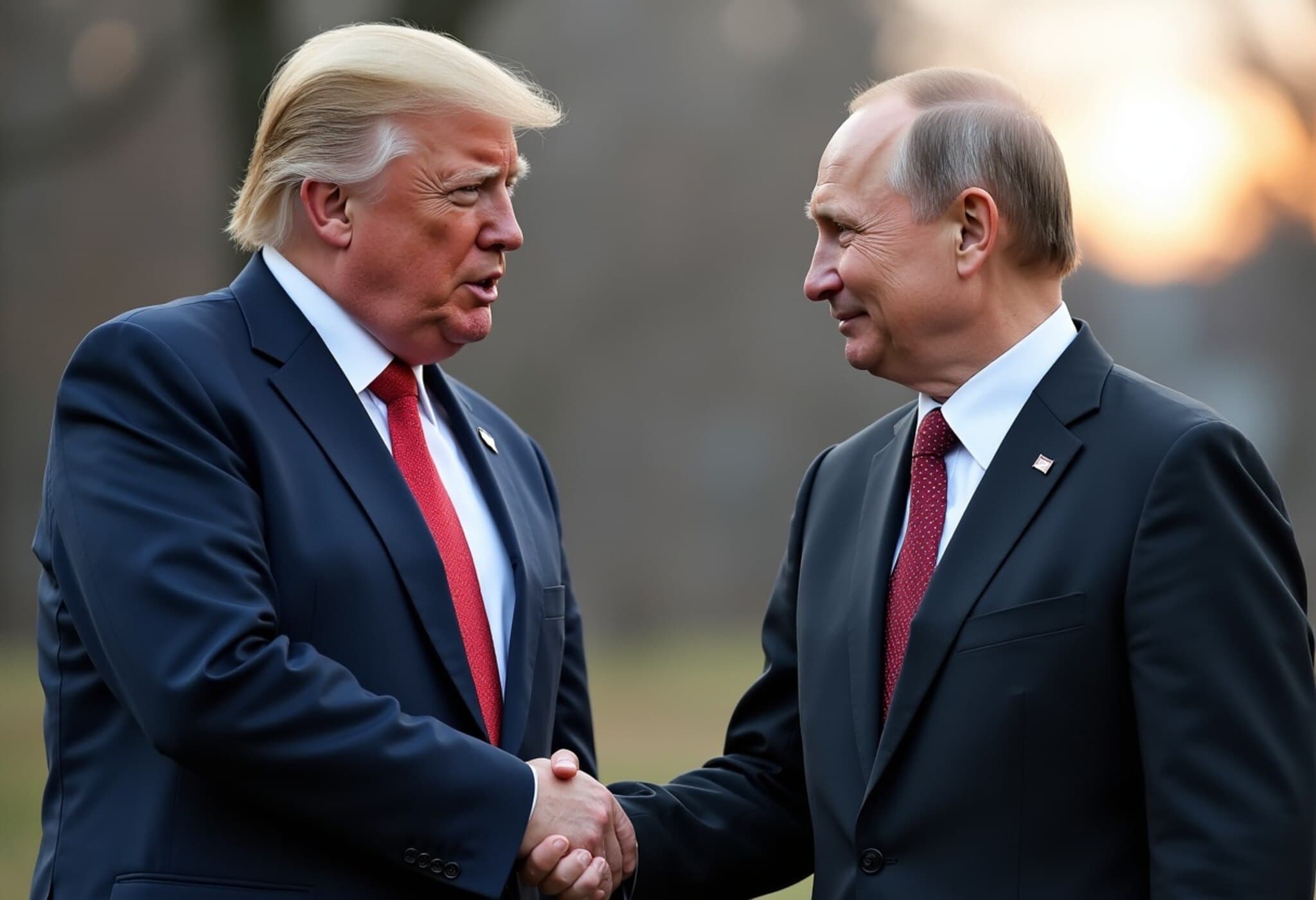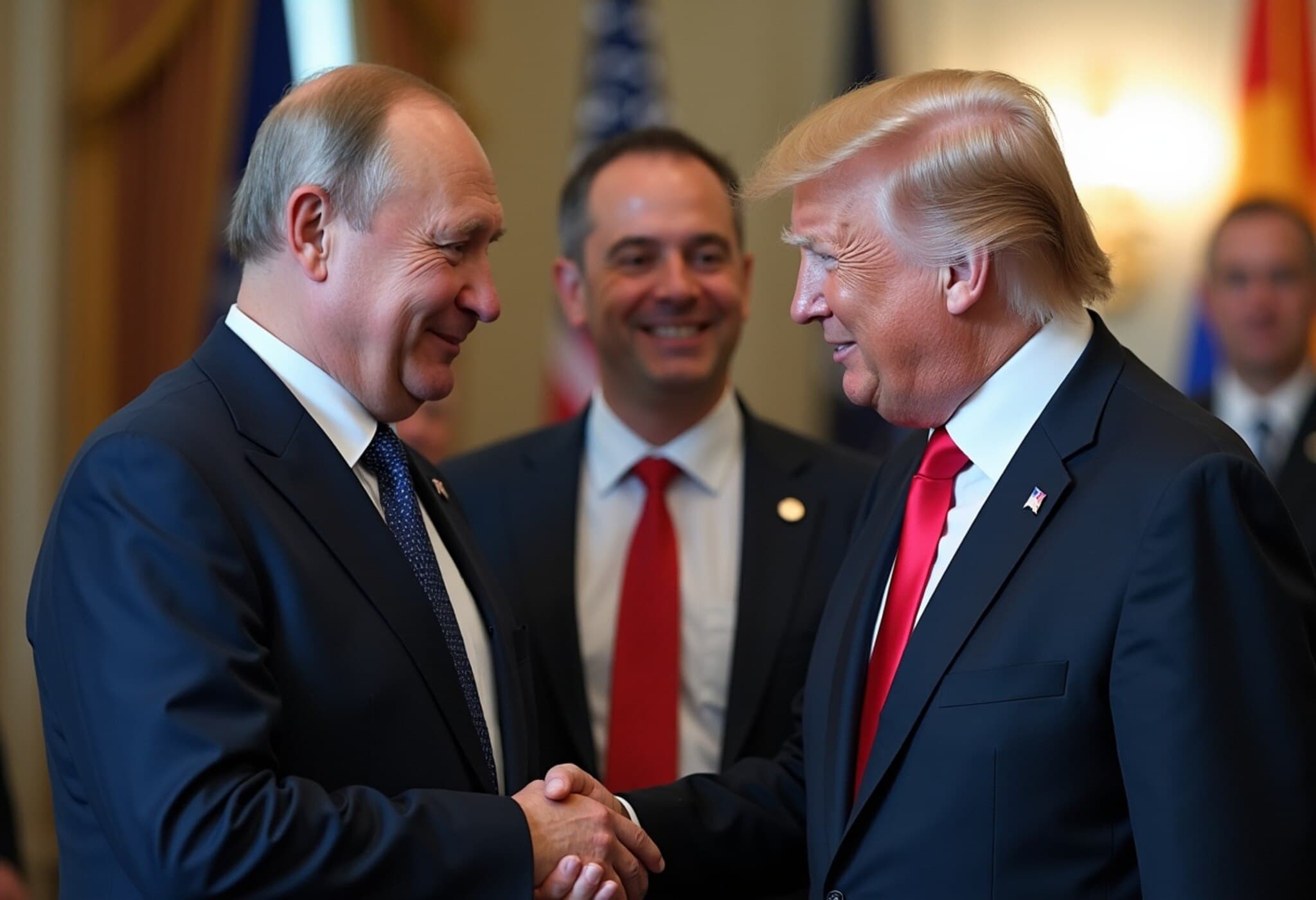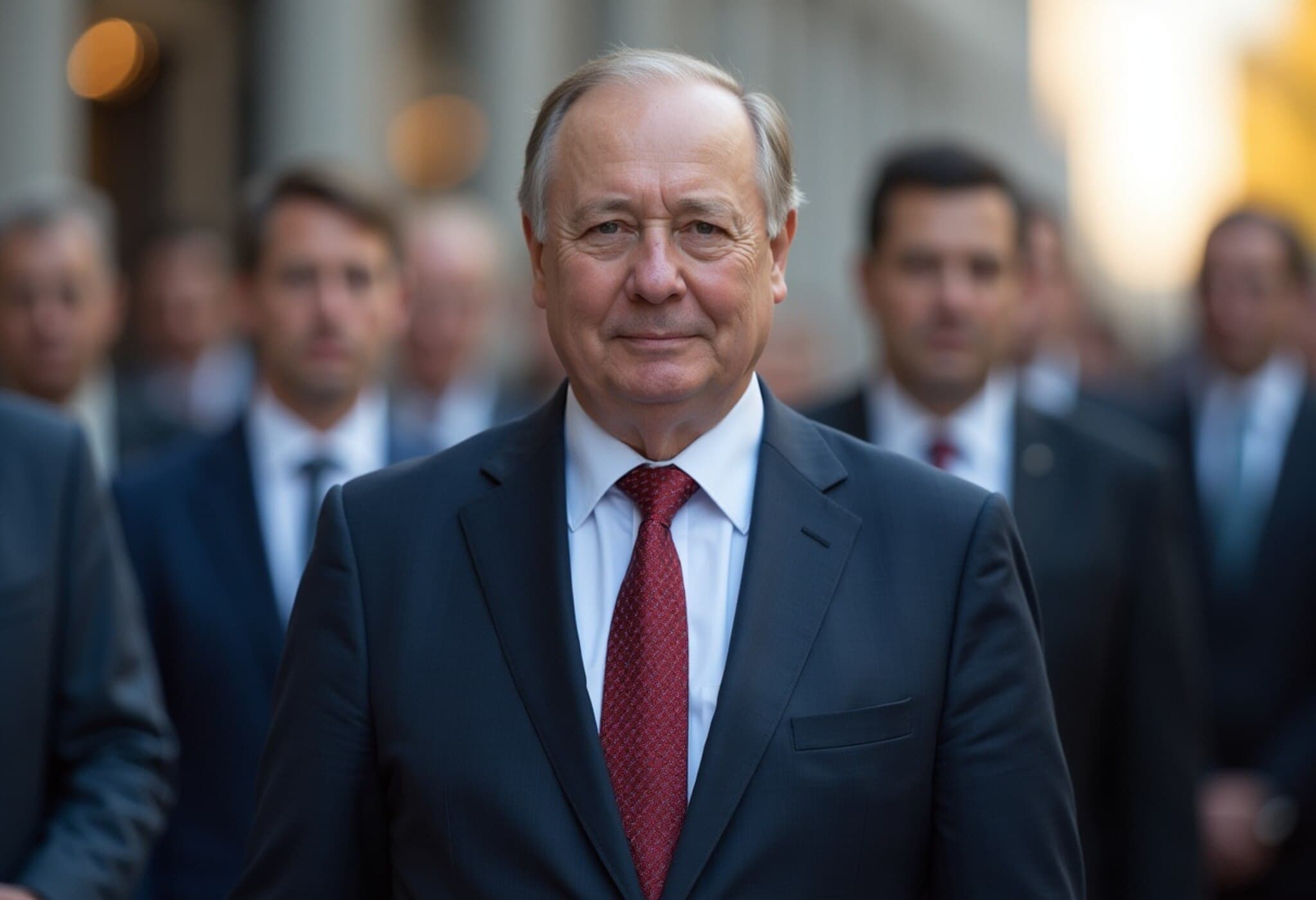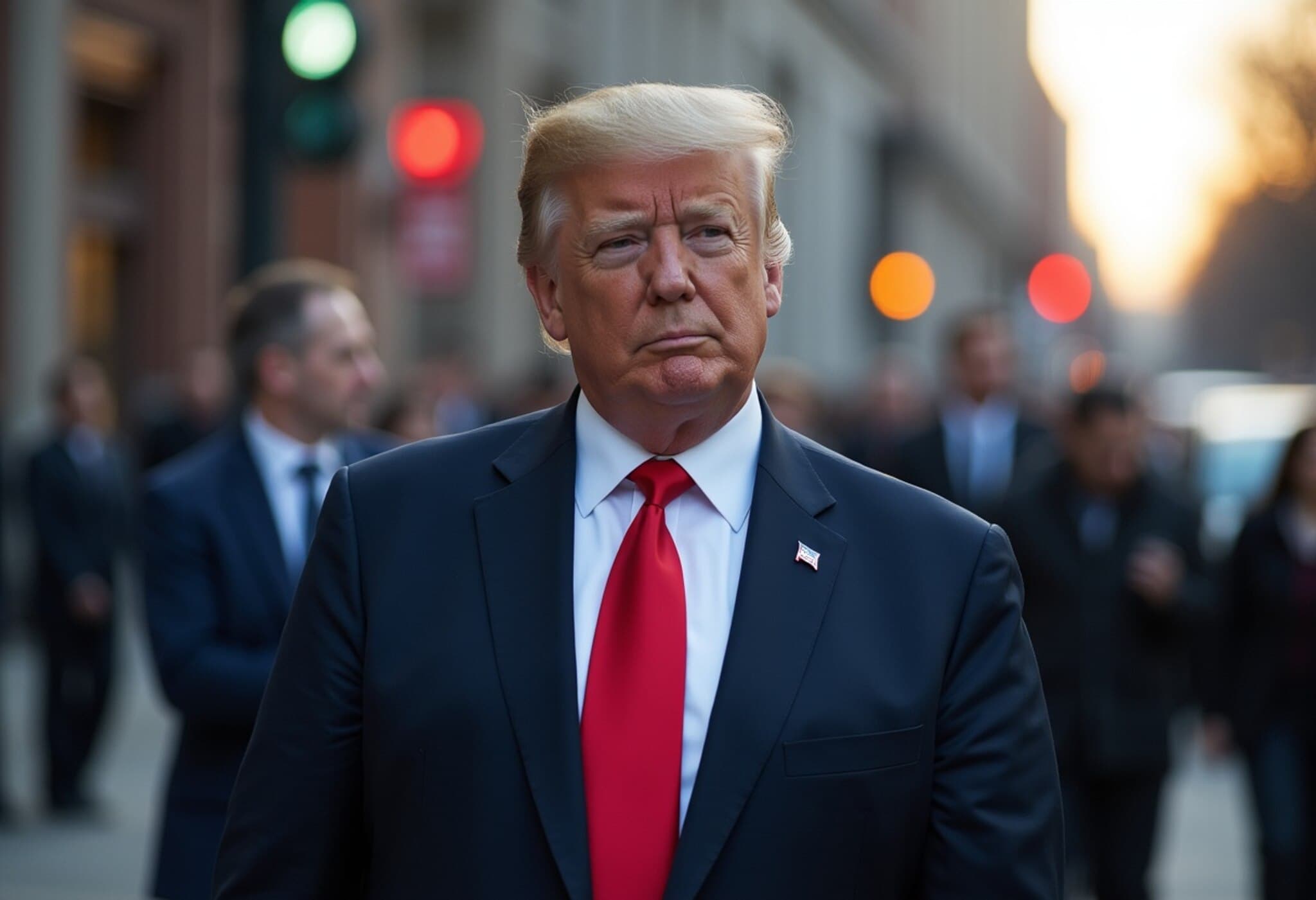Putin's Empire Dream: A Renewed Quest Beyond Ukraine
Since the collapse of the Soviet Union in 1991, Vladimir Putin has quietly but relentlessly pursued a grand vision: restoring Russia's influence and territorial sway reminiscent of the Soviet era. His current military campaign in Ukraine is not just about immediate territorial control; it represents a broader geopolitical gambit.
As the world watches closely, Putin’s gaze increasingly turns toward the upcoming summit in Alaska with former US President Donald Trump. Rather than seeking a peaceful resolution, Putin appears focused on securing Trump's endorsement—or at least his complacency—regarding Russia’s victory in Ukraine. This nod could embolden Putin to push further westward into Eastern Europe, threatening nations from Lithuania to Moldova.
Strategic Standoff: Putin’s Inflexibility and Trump's Ambiguous Position
Despite public calls from Trump for negotiations and a middle ground in the Ukraine conflict, Putin remains unwavering.
- Confidence on the battlefield: Recent territorial gains and sustained support from allies like Iran and China—particularly the supply of drones built with Iranian design and Chinese engines assembled in Russia—have fortified Putin’s resolve.
- Analyst Insight: Kseniya Kirillova of the Jamestown Foundation explains, "The Kremlin believes victory is inevitable. Their growing drone capabilities are a game changer, enabling a persistent offensive aimed at bringing Ukraine to its knees."
Meanwhile, Ukrainian President Volodymyr Zelenskyy and European allies have urged Trump to maintain a firm stance, warning that any concessions could embolden Moscow further. However, Trump’s past interactions with Putin have muddled perceptions, as he often appears sympathetic or conciliatory toward Russian positions.
Historical Context: Putin’s Imperial Mindset
Putin’s worldview is deeply rooted in the legacy of the Soviet Union and the Soviet-era Chekist ideology, which perceives external forces controlling national destinies and rejects the notion of fully sovereign neighboring states like Ukraine.
- Putin has consistently denied Ukraine's legitimacy as an independent nation, viewing its cultural identity and Western alliances as threats to Russia’s rightful sphere of influence.
- Past interventions, such as the 2008 war against Georgia and the 2014 annexation of Crimea, illustrate a pattern of aggressive moves to reclaim former Soviet territories or influence zones.
- The ongoing war in Ukraine since 2022 marks a culmination of nearly two decades of escalating conflict and proxy confrontations.
Experts emphasize that unlike pragmatic dealmakers, Putin is ideologically committed to redrawing the map and is unlikely to be swayed by economic incentives such as trade agreements or sanctions relief.
Expert Commentary on Russo-American Dynamics
Kirillova underscores the danger of underestimating Putin’s long game: "Without meaningful pressure, Putin interprets Trump's threats as mere posturing. The Kremlin hopes to maintain favorable ties through flattery and promises.”
Shreya Sinha, European studies associate at the Vivekananda International Foundation, highlights the strategic military preparations signaling Russia’s broader ambitions:
"The buildup along Finland’s border after its NATO accession indicates preparations for a potential wider conflict with European states. Russia isn’t just posturing; it’s readying its western front for future confrontations."
Alaska Summit: A Pivotal Moment with High Stakes
The forthcoming summit between Putin and Trump holds implications far beyond Ukraine. Putin seeks to persuade Trump to support—or at least legitimize—Russia’s actions in Ukraine and potentially to greenlight further expansion into Eastern Europe.
- Despite their public disagreements, both leaders share nationalist, imperialist tendencies that reject the post-World War II international order based on sovereign states and self-determination.
- Trump’s past rhetoric includes ambitious territorial claims beyond US borders, while Putin openly aims to restore Russia’s imperial boundaries.
While suspicions swirl around the nature of their alliance, some analysts suggest Trump may lack full understanding of Putin’s strategic depths and could be manipulated by Russian diplomacy and disinformation.
Consequences of a Potential Deal: The Road Ahead for Europe
If Trump were to endorse a deal forcing Ukraine to accept Putin’s maximalist terms—such as ceding large eastern territories, restricting Ukraine’s military capabilities, and accepting constitutional changes that erode national identity—the repercussions would be severe and far-reaching.
- Risk of renewed conflict: Experts warn that such a one-sided treaty would only buy Russia time to launch further invasions, possibly targeting countries like Poland or the Baltic states.
- Ukrainian resistance: President Zelenskyy has made clear that he will not agree to a deal that legitimizes Russian gains or undermines Ukraine’s sovereignty.
- European security: A Russia-favored settlement would destabilize the continent, undermining the post-Cold War security architecture.
Sinha stresses that ongoing fighting in contested regions such as Donetsk, Sumy, and Luhansk demonstrates the persistence of conflict and the high stakes involved in any peace negotiation.
Editor’s Note
The Alaska summit represents a critical juncture in the Ukraine war and European security. Putin’s unwavering imperial ambitions, combined with Trump’s unpredictable stance, pose significant questions:
- Could diplomatic negotiations truly halt Russia’s relentless push or merely delay further conflict?
- How will the U.S. balance strategic interests with democratic values and alliances?
- What role will European nations play in shaping a durable peace or preparing for future confrontations?
Understanding the historical roots and ideological drivers behind Putin’s ambitions is vital. The world must watch carefully, recognizing that the consequences of missteps at this summit extend far beyond Alaska’s shores, affecting the security and political landscape of the entire Western world.

